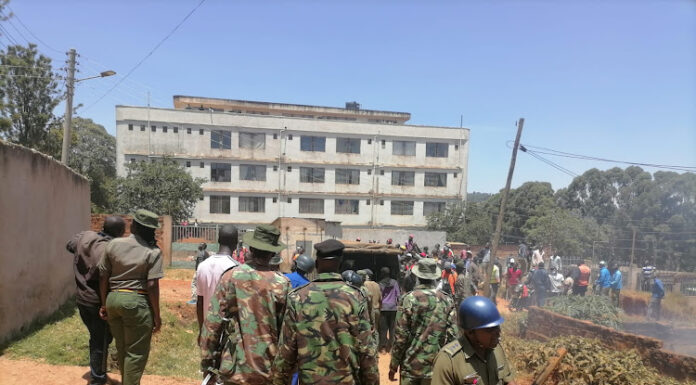
Coffee farmers across the country will from now on be able to buy subsidized farm inputs from the Kenya National Trading Corporation (KNTC), Agricultural Cabinet Secretary Peter Munya has said.
Munya said a 50 kg bag of fertilizer that was retailing at Sh 2,800 will cost only Sh 2,000 from the KNTC depots.
The CS said the move aims at getting rid of brokers and middlemen after the government established that the cost of the vital inputs had become unaffordable to most farmers due to the cartels.
He directed that KNTC be transporting the inputs to all farmers society headquarters from where individual farmers will then sign and collect their orders.
Munya who was addressing Kirinyaga Coffee cooperative society leaders at the Sagana Kenya Planters Cooperative Union depot over the weekend said measures will be put in place to safeguard farmers from further exploitation by brokers and middlemen.
He said all the three KPCU mills at Dadora, Meru and Sagana will be rehabilitated at a cost of Sh 1.5 million as they had the most modern equipment for milling coffee.
“In fact, the three mills have the capacity to mill coffee from the entire country and East Africa region without any strains and this being the case you can now clearly see what I am talking about,” he told the attentive farmers.
Accompanied by the area Governor Anne Waiguru, Munya urged the farmers to ensure they were registered under the New Kenya Planters Cooperative Union in order to benefit from the Sh 3 billion Coffee Cherry Advance Program.
“Registered farmers will be able to access in advance, an amount of up to 40 per cent of the cost of cherry delivered per season ahead of sale of the crop, to help meet their financial needs as they waited for the main payout,” he said.
He also assured the farmers that some coffee cooperative societies will be assisted in order to reduce the primary processing losses due to outdated machinery and technologies.
“Under this arrangement, the selected factories will also have standby generators installed to cope with any power failures since such eventualities contribute to poor coffee grades, “he noted.










